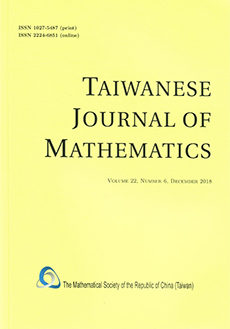Abstract
Let $k \geq 1$ be an integer, and let $(U_{n})$ be the Lucas sequence of the first kind defined by \[ U_{0} = 0, \quad U_{1} = 1 \quad \textrm{and} \quad U_{n} = kU_{n-1} + U_{n-2} \quad \textrm{for $n \geq 2$}. \] It is well known that $(U_{n})$ is periodic modulo any integer $m \geq 2$, and we let $\pi(m)$ denote the length of this period. A prime $p$ is called a $k$-Wall–Sun–Sun prime if $\pi(p^{2}) = \pi(p)$.
Let $f(x) \in \mathbb{Z}[x]$ be a monic polynomial of degree $N$ that is irreducible over $\mathbb{Q}$. We say $f(x)$ is monogenic if $\Theta = \{ 1, \theta, \theta^{2}, \ldots, \theta^{N-1} \}$ is a basis for the ring of integers $\mathbb{Z}_{K}$ of $K = \mathbb{Q}(\theta)$, where $f(\theta) = 0$. If $\Theta$ is not a basis for $\mathbb{Z}_{K}$, we say that $f(x)$ is non-monogenic.
Suppose that $k \not\equiv 0 \pmod{4}$ and that $\mathcal{D} := (k^{2}+4)/\gcd(2,k)^{2}$ is squarefree. We prove that $p$ is a $k$-Wall–Sun–Sun prime if and only if $\mathcal{F}_{p}(x) = x^{2p}-kx^{p}-1$ is non-monogenic. Furthermore, if $p$ is a prime divisor of $k^{2}+4$, then $\mathcal{F}_{p}(x)$ is monogenic.
Citation
Lenny Jones. "A New Condition for $k$-Wall–Sun–Sun Primes." Taiwanese J. Math. 28 (1) 17 - 28, February, 2024. https://doi.org/10.11650/tjm/231003
Information





